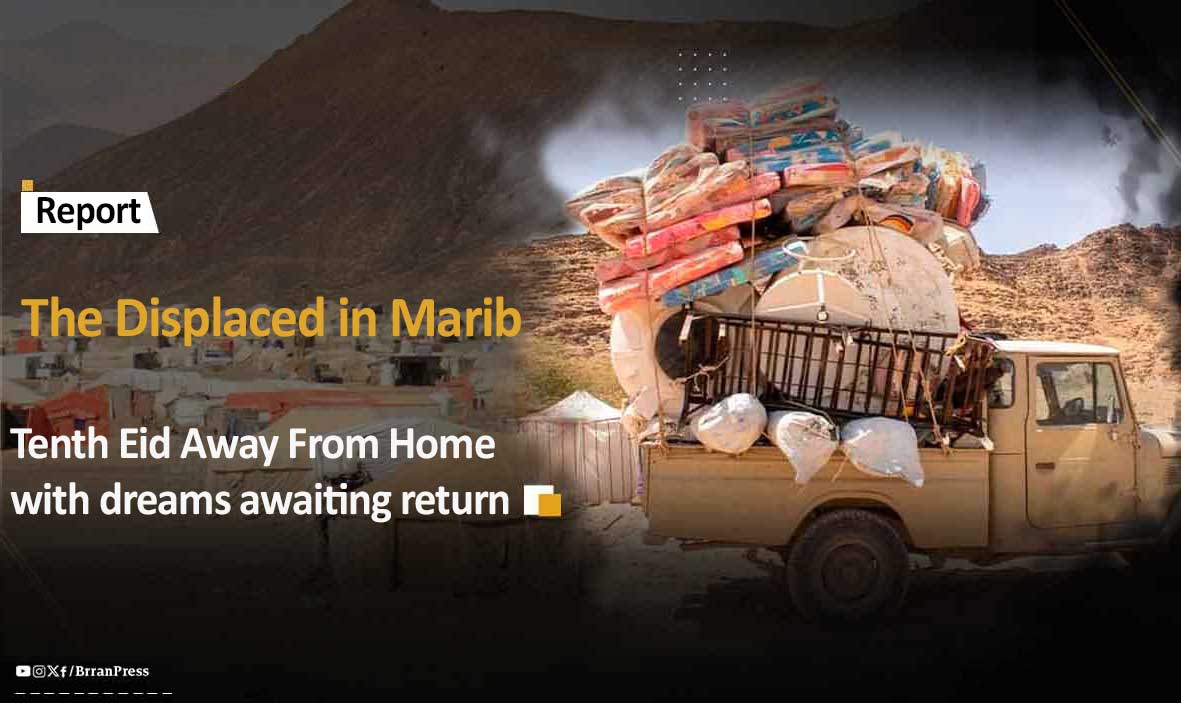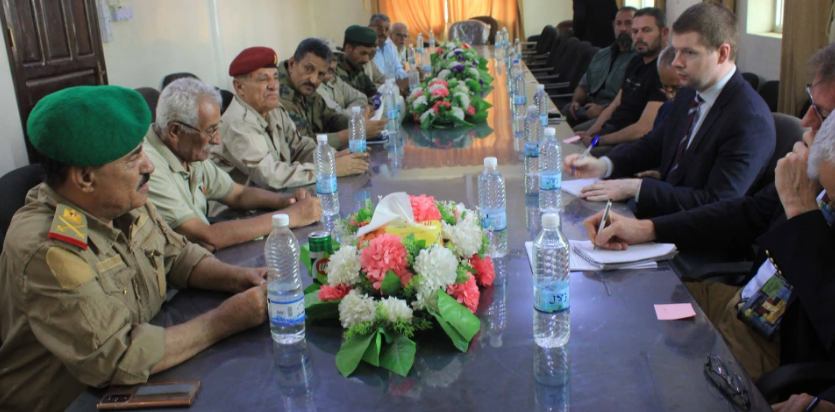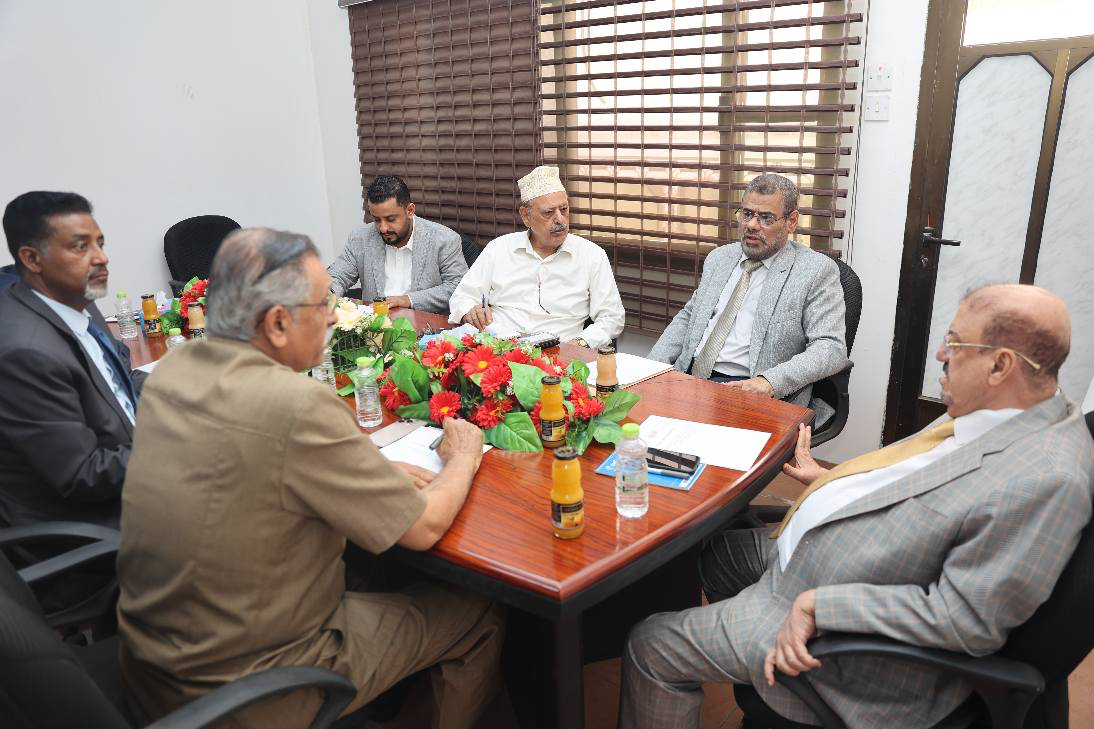
Barran Press
For the tenth consecutive Eid al-Adha, Abeer Al-Hamidi, a displaced journalist in Marib Governorate, finds herself far from home, a reality shared by thousands of others in the region.
"I haven't seen my mother or siblings for years," Abeer told Barran Press, her voice heavy with emotion. "I don't even count these ten years of my life. I haven't been able to see my mother, kiss her on holidays, or find solace in her arms during times of sadness and pain."
The displacement, she said, has robbed them of the joy and togetherness that once defined Eid. "Family gatherings and the traditions we used to cherish are gone. Everything about the holidays feels different."
We found alternatives...but!
While acknowledging the challenges of displacement, Abeer says they've found ways to adapt. "We've found alternatives, but they're not ideal," she explained. "We've become accustomed to this situation, but the holidays always bring back the longing for family, home, and everything we've lost due to war and displacement."
The impact on children is particularly poignant. "They constantly miss their homes and loved ones," Abeer said. "They miss the customs and traditions they used to celebrate in their villages. This nostalgia negatively affects their joy and causes them sadness and longing."
Abeer hopes for peace and security to return to Yemen, allowing displaced families to return home. "We hope that all closed roads will be opened, and the suffering of the displaced will end," she said.
Dr. Nabil Al-Houri, a displaced businessman from Sana'a, echoes the sentiment of longing for home. "Sana'a meant everything to me: its soil, air, and water," he said. "After we were forced out, we left behind everything beautiful - our family, loved ones, relatives. We moved to Marib, a place of civilization and history."
While acknowledging the loss, Al-Houri finds solace in Marib. "Marib has become God's substitute for everything we lost in Sana'a," he said. "Marib is my homeland, and I have beautiful memories in Sana'a. Therefore, I don't consider myself displaced there."
Double suffering
Journalist Kamal Hassan highlights the amplified suffering of the displaced during holidays. "Holidays always reopen the wound, double the suffering of the displaced, and remind them of the tragedy of displacement," he said.
Hassan points to the lack of necessities and entertainment options in displacement camps, making it difficult for families, especially children, to celebrate Eid. "The inability to provide children with Eid needs, such as new clothes, doubles the suffering of the displaced and makes parents feel helpless," he added.
As millions of Yemenis spend Eid al-Adha away from home, the longing for peace and a return to normalcy remains a shared hope, a dream that fuels their resilience amidst the hardship of displacement.
Sadness and hope to return
"For us, Eid is a sad day," said Umm Ahmed, a displaced woman from Sana'a Governorate. "We miss our loved ones and our homes. We remember how we celebrated, and we feel sad about what happened."
Umm Muhammad, displaced from Hodeidah Governorate, echoes the sentiment. "We miss the true feeling of Eid, the feeling of joy and happiness," she said. "In the displacement camps, everything is difficult. Even buying the Eid sacrifice has become an unattainable dream for many of us."
Yet, amidst the hardship, there's a glimmer of hope. "Eid reminds the displaced of their homeland and their beautiful memories, which enhances their hope of returning, even after a while," Umm Muhammad added.
Ahmed, a young man displaced from Taiz Governorate, reflects this sentiment. "We celebrate Eid as much as possible, and we try to spread joy among the children, but deep down we dream of the day when we will return to our homes and live a normal life."
Difficult conditions
The reality of displacement, however, is stark. Saif Muthanna, Director General of the Executive Unit for the Displaced in Marib Governorate, describes the situation as dire. "They live in difficult conditions that lack basic services such as clean water, sanitation, and adequate health care," he said. "Poverty and unemployment are among the biggest problems facing the displaced. It makes daily life a great challenge, let alone Eid days."
Muthanna highlights the additional challenges faced by displaced families during Eid, including limited access to food, clothing, and gifts, exacerbated by rising prices and the psychological toll of displacement.
Despite the hardships, there are efforts to alleviate the suffering of displaced families during Eid. Muthanna explains that the Executive Unit, in coordination with humanitarian organizations, distributes sacrificial meat, food baskets, new clothes, and gifts to children, providing some semblance of joy during the holiday.
"This support can alleviate, even if only a little, what the displaced are suffering from, and allow them to celebrate Eid with dignity and happiness, despite the difficult circumstances they face," Muthanna said.
Marib Governorate currently hosts 2,274,453 displaced persons, representing 73.67% of the total number of displaced people in liberated governorates, according to the latest statistics from the Executive Unit for the Management of Displaced Persons' Camps.
As Eid celebrations come to an end, the displaced families in Marib remain in a precarious situation, their lives marked by hardship and uncertainty. Yet, their resilience and hope for a return to their homes offer a beacon of light in the midst of their struggles.





